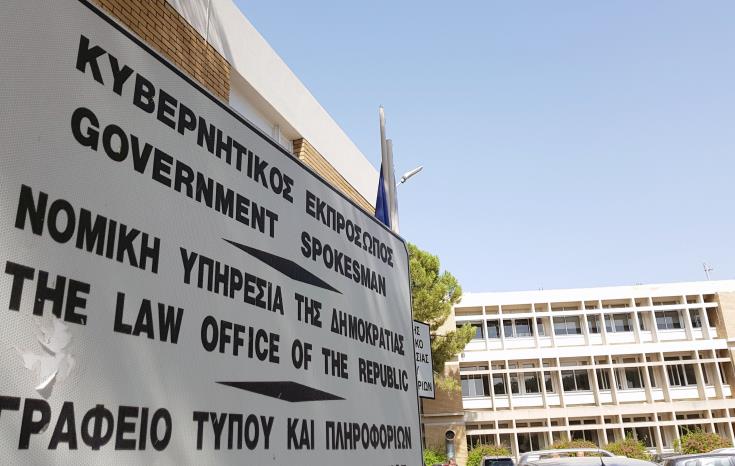The European Commission’s annual rule of law report praised the progress made thus far in Cyprus’ efforts to reform its legal service and encouraged it to “further advance” those efforts.
The 2025 edition of the report, published on July 8 but released on Wednesday, was referenced in a statement later in the day by Cyprus’ legal service, which highlighted its mention of the “extensive work” being carried out in investigating high-level corruption cases.
The report wrote that the reform is being carried out “with the goal of providing a clearer distinction between the advisory and the prosecutorial functions of the attorney-general”.
“With the reform, the attorney-general maintains its role as legal adviser of the state and head of the legal service, while the powers relating to the prosecution are transferred to the new institution of the director of public prosecutions [DPP],” it said.
The report added that incumbent attorney-general George Savvides has “requested the opinion of the Supreme Court” in relation to the review of decisions not to prosecute or to discontinue legal proceedings.
Additionally, it praised “efforts to promote the use of alternative dispute resolution”, including the modernisation of Cyprus’ arbitration laws, saying they are “supported by businesses”.
However, it did criticise what it described as a “low” level of digitalisation within Cyprus’ legal system, adding that “there is not a fully functional integrated electronic case management system”.
It also pointed out that “challenges regarding resources and infrastructure continue to affect the work of first instance judges” and offered criticism regarding the extended length of judicial proceedings and backlogs, which it described as a “serious concern”.
Overall, it said “some further progress” has been made towards the planned reforms to the legal service in the last year and added that those reforms will “provide a clearer distinction between the advisory and prosecutorial functions of the attorney-general”.
Looking ahead to the coming 12 months, it recommended that Cyprus “further advance with the ongoing reform of the legal service and the establishment of the office of the DPP”, while also calling for the legal service to “establish an effective review of decisions not to prosecute or to discontinue proceedings”.
The legal service’s modernisation will entail a separation of the attorney-general and deputy attorney-general’s powers by establishing two new roles: those of a DPP and a deputy.
The government outlined that the attorney-general will remain as the state’s legal adviser and the head of the legal service, while the DPP and their deputy will undertake the attorney-general’s current responsibilities relating to public prosecutions.
In addition, the legislation relating to the legal service includes a maximum term length for all four roles, which, the government says, has been written “in line with the recommendations of various European and international bodies,” including the European Commission, the Group of States against Corruption (Greco), and the Council of Europe.
Calls for an “effective review of decisions not to prosecute or to discontinue proceedings” come after the European Court of Human Rights (ECtHR) ruled that Cyprus had violated a woman’s human rights after deputy attorney-general Savvas Angelides had decided to halt the prosecution of a man she said had raped her.
Angelides has faced calls to resign over the matter, but has so far remained in post.
Elsewhere, the report praised that the anti-corruption authority’s resources “are being increased” and also highlighted the “ongoing discussions in parliament to strengthen” its functional independence.
“A lot of work is being put into investigating high-level corruption cases and more investigations have been initiated. Important efforts are being made to step up capabilities through recruitment and training to address corruption,” it said.
In its comments, the legal service on Wednesday stated that in 2024, five individuals were convicted for corruption offences in four adjudicated cases, while police investigated 13 corruption cases, including high-level cases, compared with three convictions and five investigations the previous year. Six new investigations were launched in 2025.
A significant number of lower-level corruption cases, particularly involving local administrations and authorities, were also reported. In 2024, 14 corruption-related cases were brought or tried in the field of sports, and an investigation remains ongoing into a senior sports official, which began in late 2023.
According to the legal service, many of the 15 prosecutions linked to the now-suspended citizenship-by-investment scheme remain ongoing, with 26 individuals and legal entities currently facing charges. The European Public Prosecutor’s Office (EPPO) investigated one corruption case in Cyprus in 2024, representing about four per cent of EPPO’s total caseload in the country.
It added that “compliance with and enforcement of” local laws regarding lobbying is “improving” and that efforts are being made to “improve the efficiency, transparency, and accountability in public procurement”.
Civil society organisations, notably Oxygen of Democracy and CIReN, have expressed ongoing concerns about systemic weaknesses, delays in investigations and prosecutions, and a perceived lack of impartiality in the handling of high-level cases, calling for more effective checks and balances, as well as increased specialisation and resources.







Click here to change your cookie preferences